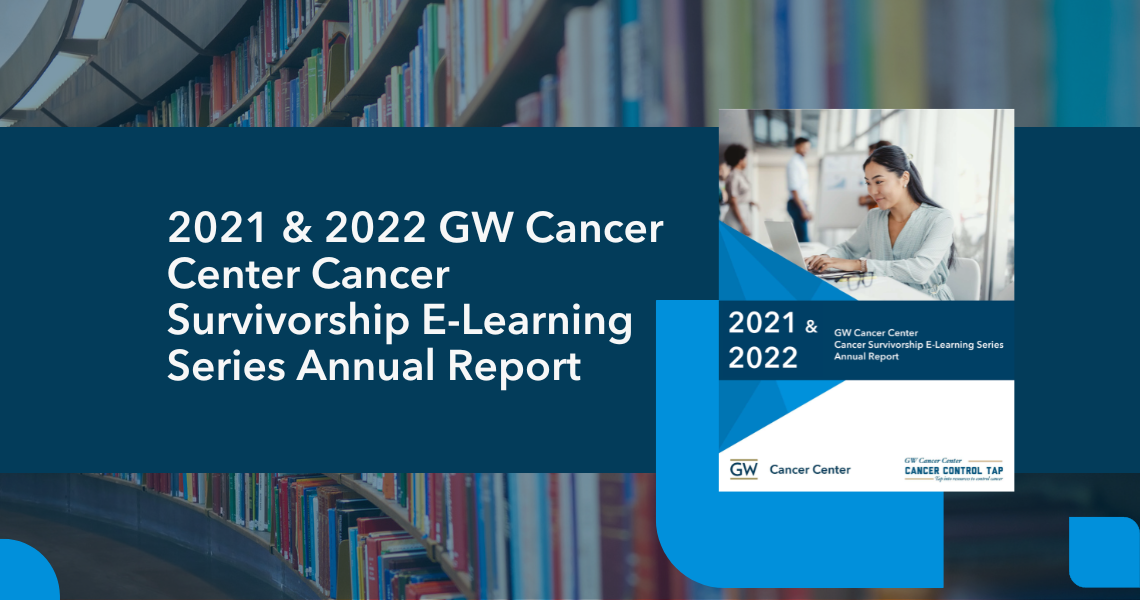The Cancer Survivorship E-Learning Series was launched in 2013. The online training is a self-paced continuing education program available to healthcare professionals at no cost. The modules in the Cancer Survivorship E-Learning Series cover the following topics:
- Module 1: Overview of key components of cancer survivorship care, national efforts to address the needs of cancer survivors, health disparities in care, and health status among cancer survivors
- Module 2: Overview of common long-term and late effects of cancer and its treatment
- Module 3: In-depth look at the psychosocial impact of cancer and recommendations on how to support the psychosocial needs of cancer survivors
- Module 4: Prevention and wellness in cancer survivorship care and the role of the primary care providers in supporting cancer survivors to make lifestyle changes
- Module 5: Survivorship care coordination, the use of survivorship care plans as a communication tool, and the role of oncologists and primary care providers in post-treatment care
- Module 5 Companion: A framework and tools to help clinicians and healthcare organizations measure patient-reported priorities to inform quality cancer survivorship care
- Module 6: The role of rehabilitation in post-treatment care and the importance of spirituality and interventions to support cancer survivors
- *NEW* American Society of Clinical Oncology (ASCO) Guidelines on Survivorship Care: Overview of ASCO guideline summary on managing chemotherapy-induced peripheral neuropathy in survivors of adult cancers, fertility preservation in patients with cancer, and management of osteoporosis in survivors of adult cancers with nonmetastatic disease
Data in this report were collected from learners who completed at least one Cancer Survivorship E-Learning Series module between January 1, 2021, and October 18, 2022.
If you have questions about the annual report, please reach out to the GW Cancer Center at cancercontrol@gwu.edu.
